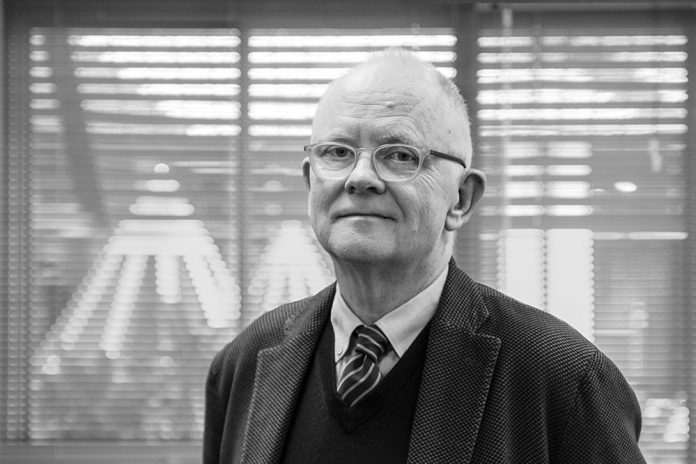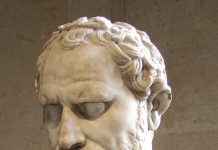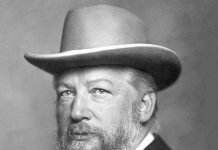The world is becoming faster but less well-thought-out. As such, the western hemisphere of the planet is a hemisphere of men and not of laws (principles); the Covid-19 pandemic, especially as it was handled in the past three months, proved that the word of powerful scientists matters more than the principles of science. Censorship has become an agenda of the new administration, and in the city where I will soon attend college—Chicago (and in many other places)—widespread segregation is being introduced. The cause for people’s tolerance of such vicious and volatile cultural disease is simple: people do not think well. Common sense is scarce because people can afford to invest their resources in escaping reality. Appropriately for a nation filled with so many who, not trusting their own minds, trust another’s, our new national anthem is: “the experts say—“. I sympathize with Richard Feynman’s provocative slogan, “Science is the belief in the ignorance of experts”. But, as I noted, we are living in an age of poor thinking, and bad philosophy—or rather the failure of good philosophy. And that—the failure of philosophy—is the topic of Dr. Stephen Gaukroger’s newest book, The Failures of Philosophy.
Gaukroger sets out not to identify the failings of “particular theories”, but rather those moments in history where a philosophic programme, as a system of living and knowing, is replaced by a system which offers a superior manner (presumably) of confronting the problems of human existence (and therefore, the problems of philosophy). Those failures which are his subjects of investigation are cases “of philosophy failing to live up to different sets of historical promises, the victim of takeovers by other disciplines showing themselves to be demonstrably better at doing what it [philosophy] was trying to do”. Philosophy being identified as a “victim of takeovers” is essential to Gaukroger’s project, for in its historical moments of failure, Philosophy is not destroyed by other methods of living or knowing, but it is hijacked and consequently enslaved to the eschatological or epistemological agenda of its conqueror (of which the most recent one is modern science). I ought to note that Gaukroger considers his book a book of history and not of philosophy (evidenced by his book’s subtitle: A Historical Essay), which has a note of personal irony, for I’ve always considered history a project of philosophy. Gaukroger identifies three epochs in the history of philosophy’s failings, which are the skeleton of his own investigation: the first epoch is the birth of Christianity. Classical Greek thought orbited around the good life; virtue, friendship, citizenship, and the activities through which virtue was exhibited. Yet – and this was to be its downfall – Philosophy considered goodness in a “second-order” way; Philosophy’s substance was the Greek idea of episteme, which “proceeds via abstraction”. And even in the times of Classical Greece, philosophy’s agenda seemed intent on transforming all areas of life into an abstract form of inquiry: “morality, politics, natural philosophy, sense perception, the nature of the mind, and so on”. In its ambition to be a comprehensive system of knowing and living, philosophy assumed a position above the messiness of first-order activity, so as better to judge how first-order activity ought to be conducted.
Now, philosophy was not the only means of investigating life in classical Greece; the tragedies and their authors explored reality in a non-abstract way: by re-enacting it. The emotions, which were not counted as important by, say, Plato in judging the ethical correctness of an action, played the most primal role in Greek Tragedy’s conception of human reality. Aristotle and his successors, says Gaukroger, would struggle “as to how it was possible to accommodate an account of the good life that depends of sensibility and the emotion to a philosophical programme that works in second-order terms.” Philosophy would, nevertheless, remain second-order, and thus we are brought to the conquest of philosophy by Christianity. Tertullian, (165-225 AD) despised philosophical inquiry, yet by the fourth century, the “assimilation” of Philosophy by Christianity rather than its “abandonment” was systemic. In an admirably reserved way, Gaukroger explains that Christianity’s treatment of philosophical problems (such as the good life) had a “more immediate appeal” than classical philosophy. There arose the idea that Philosophy was incomplete without Christianity, which in itself was integral with the phenomenon at the heart of the Christian belief—that God had become flesh. Before the incarnation, God, like philosophy itself, occupied a second-order position, a position of being outside the messiness of reality, and engaging with it only mediately. But with the incarnation, God engaged with Creation in a first-order fashion, and He no longer occupied a place of lofty and juridical abstraction. How, was the question, could philosophy, a second-order form of inquiry, comprehend or explain competently, a God who was both second and first-order simultaneously. The problems of philosophy were refracted through a divine mirror. Proper ethics, for instance, were not understood through second-order archetypal investigation any longer, but through first-order imitation of a God who was engaged with reality in a first-order way.
Thomas Aquinas would, many centuries later, reconcile Philosophy with Christianity and restore philosophy its autonomy by positing its role as a mediator between faith and reason. Doing what the ancient Greek philosophers never could do, Aquinas assimilated sense perception fully into philosophy and so created a first-order philosophical way of engaging with the world (which would later become science). Metaphysics was the philosophical mediation between natural philosophy (reason) and theology (faith). This was the second epoch in the history of philosophy’s failures, and for the sake of brevity, I have reduced it to its most basic simplicity. Bacon would, after the Renaissance, paradigmatize the natural philosopher by defining him as one who “produced new works for the public good”—something indeed which has seeped into the modern conception of the scientist. The third epoch in this philosophical history is the rise of modern science, and its own respective conquest of autonomous philosophy. Recalling why philosophy first fell in the face of Christianity, it must be observed that modern science seemed to offer a better (and really, more practical) method for solving a host of philosophical problems. Through Hume most especially, Gaukroger explicates the endemic disillusionment which people entertained with philosophy and its practitioners—as the “popular philosophy” movement in Germany held: philosophers were “out of touch with reality”.
As the world aged into the 1700s and 1800s, people became concerned (in the Baconian understanding of the natural philosopher) as to how philosophy improved the lives of individuals; perhaps this was the very essence of the German “popular philosopher” movement’s criticism that philosophers were not in touch with reality. As sensibility became “a power to be harnessed and redirected. . . .the body. . . .seemed to offer the most effective site of intervention in the moral, intellectual, and physical constitution of human beings.” A first-order manner of engaging with the human person naturally made the physical primal over the spiritual, and second-order forms of inquiry, such as philosophy, seemed less important. Even Kant’s account of sensibility and understanding (and Kant was autonomous philosophy’s last gasp at remaining liberated) proved “unsatisfactory”, for the root of Kant’s sensibility and understanding was “unknowable”. Mill’s utilitarianism and other such theories arose, and with them (or at least with Mill’s theories) came the idea that all moral standards be subject to “external standards”. Morality had been removed from second-order inquiry, to practical first-order inquiry once again, though a different first-order standard than Christianity’s standard. Through Mill, Frege, Russell, Husserl, and Wittgenstein, philosophy was made into a servant of science; philosophical habits and methods were scientized and objectified. Even now, philosophy does not have its own autonomy. How does Gaukroger propose to reinstate that autonomy? Philosophy must rely upon its own “resources: it cannot ride on the back of science or anything else”. Gaukroger rightly recognizes that “contemporary philosophy. . . .seems to have lost its bearings”. His purpose in recounting philosophy’s many failures is appreciably simple: “if we can recognize the earlier failures, we might be able to learn from them.” We might; but it is a dark omen that science itself ( or scientists) are so much slaves to ideology. Philosophy, in all its forms, will not be far behind.
Stephen Gaukroger is a British/Australian historian of philosophy and science. He is Emeritus Professor of History of Philosophy and History of Science at the University of Sydney
The Failures of Philosophy, published by Princeton, is $35.














